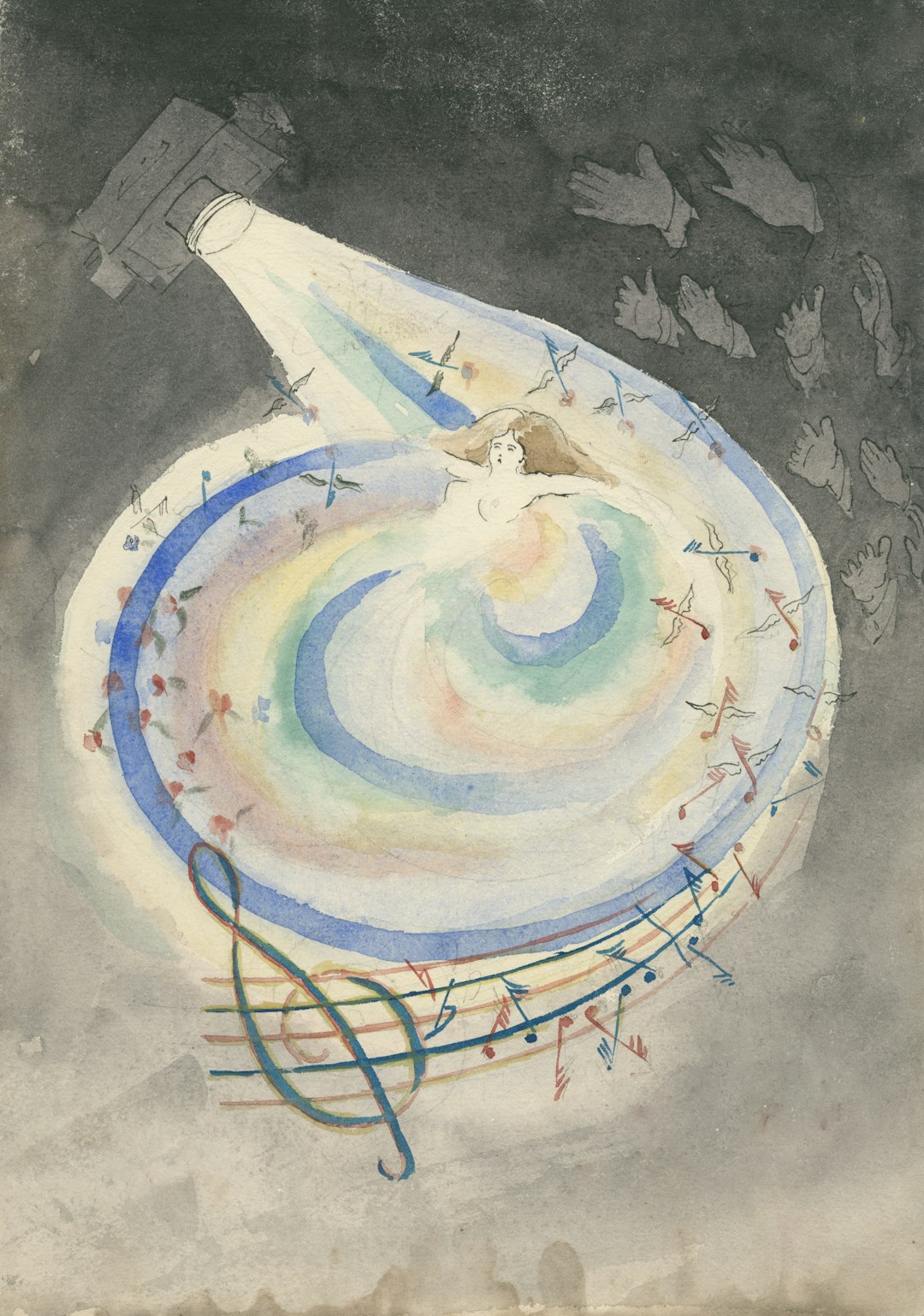Support our educational content for free when you buy through links on our site. Learn more
What Are the Warning Signs in Dreams? 10 Key Insights to Decode Your Nighttime Messages! 🌙
Have you ever woken up from a dream feeling uneasy, as if your subconscious was trying to tell you something important? You’re not alone! Many people experience dreams that serve as warning signs, hinting at unresolved issues or emotions lurking beneath the surface. In this article, we’ll explore 10 common warning signs in dreams and what they might mean for your waking life. From feeling chased to witnessing natural disasters, these dreams can provide valuable insights into your emotional state and personal challenges.
Did you know that over 70% of adults report experiencing recurring dreams? These dreams often carry significant messages that can help you navigate your daily life. So, if you’ve been wondering about the meaning behind your dreams, stick around! We’ll guide you through the fascinating world of dream interpretation and provide practical tips to help you harness the power of your subconscious.
Key Takeaways
- Dreams can serve as warning signs about your emotional and mental state, often reflecting unresolved issues.
- Common warning signs include feelings of anxiety, being chased, and encountering dangerous animals.
- Keeping a dream journal is an effective way to track patterns and symbols that may indicate underlying concerns.
- Cultural interpretations of dreams vary widely, emphasizing the importance of personal context in dream analysis.
- Interpreting your dreams can lead to greater self-awareness and personal growth, helping you confront fears and make necessary changes.
Ready to dive deeper into the world of dreams? 👉 Shop our recommended dream interpretation books on Amazon to enhance your understanding of your nighttime messages!
Table of Contents
- Quick Tips and Facts
- Understanding the Language of Dreams: What Are Warning Signs?
- Top 10 Common Warning Signs in Dreams
- The Psychological Meaning Behind Warning Signs
- Cultural Perspectives on Dream Warnings
- How to Interpret Your Dreams: A Step-by-Step Guide
- The Role of Lucid Dreaming in Recognizing Warnings
- Dream Journals: Your Best Tool for Tracking Warning Signs
- Common Myths About Dream Warnings
- How to Respond to Warning Signs in Dreams
- ReDesign Your Life from the Inside Out: Using Dreams for Personal Growth
- Conclusion
- Recommended Links
- FAQ
- Reference Links
Quick Tips and Facts
- Dreams can serve as warning signs about your emotional and mental state. Pay attention to recurring themes or symbols.
- Common warning signs include feelings of anxiety, being chased, or encountering dangerous animals.
- Keep a dream journal to track patterns and symbols that may indicate underlying issues.
- Cultural interpretations of dreams vary widely; what might be a warning in one culture could be a sign of good fortune in another.
- Consulting a professional can provide deeper insights into troubling dreams, especially if they are persistent or distressing.
Understanding the Language of Dreams: What Are Warning Signs?
Dreams are like the whispers of your subconscious, trying to communicate something important. But how do we decipher these messages? Warning signs in dreams often manifest as symbols or scenarios that reflect our waking life concerns, fears, or unresolved issues. They can alert us to potential dangers or emotional turmoil that we might be ignoring.
Key Characteristics of Dream Warnings
- Recurring Themes: Dreams that repeat often signal unresolved issues. For instance, dreaming about being chased might reflect feelings of anxiety or avoidance in real life.
- Symbolic Representations: Animals, objects, or situations can symbolize deeper meanings. A snake, for example, might represent betrayal or hidden fears.
- Emotional Tone: The feelings you experience in a dream can be significant. A sense of dread or anxiety may indicate a warning, while feelings of peace might suggest reassurance.
Top 10 Common Warning Signs in Dreams
- Being Chased: Often symbolizes avoidance of a situation or fear.
- Falling: Represents loss of control or fear of failure.
- Teeth Falling Out: Can indicate anxiety about appearance or communication issues.
- Death: Often symbolizes transformation or change rather than literal death.
- Naked in Public: Reflects vulnerability or fear of exposure.
- Natural Disasters: May signify overwhelming stress or emotional turmoil.
- Animals Attacking: Often represents repressed emotions or fears.
- Inability to Speak: Indicates feelings of powerlessness or lack of self-expression.
- Recurring Nightmares: Can highlight unresolved trauma or anxiety.
- Being Trapped: Reflects feelings of entrapment in a situation or relationship.
The Psychological Meaning Behind Warning Signs
Understanding the psychological implications of dream warnings can provide valuable insights into your mental health. According to experts, dreams often reflect our subconscious processing of daily experiences and emotions.
How Dreams Reflect Mental States
- Anxiety and Stress: Dreams filled with chaos or danger often correlate with high stress levels in waking life.
- Unresolved Conflicts: Recurring dreams about conflicts or fears can indicate unresolved issues that need addressing.
- Personal Growth: Some dreams may serve as warnings about personal growth, urging you to confront fears or make necessary changes.
Cultural Perspectives on Dream Warnings
Different cultures have unique interpretations of dreams and their meanings. For example, in many Indigenous cultures, dreams are seen as a way to connect with the spiritual world, delivering messages from ancestors or spirits.
Notable Cultural Interpretations
- Native American Beliefs: Dreams are considered sacred and a means of communication with the spirit world.
- Eastern Philosophies: In some Eastern cultures, dreams are viewed as reflections of karma and life lessons.
- Western Psychology: Sigmund Freud and Carl Jung emphasized the importance of dreams in understanding the unconscious mind.
How to Interpret Your Dreams: A Step-by-Step Guide
Interpreting your dreams can be a fascinating journey! Here’s a simple guide to help you decode those nighttime messages.
Step 1: Keep a Dream Journal
- Write it Down: As soon as you wake up, jot down your dreams in detail.
- Note Emotions: Record how you felt during the dream.
Step 2: Identify Recurring Themes
- Look for Patterns: Are there common symbols or situations that appear frequently?
- Analyze Your Life: Consider what might be triggering these themes.
Step 3: Research Symbols
- Use Resources: Check out Dream Symbols Interpretation for insights on common symbols.
Step 4: Reflect on Personal Context
- Connect to Your Life: How do the dream’s elements relate to your current life situation or emotional state?
Step 5: Seek Professional Guidance
- Consult an Expert: If dreams are distressing or confusing, consider talking to a therapist or dream analyst.
The Role of Lucid Dreaming in Recognizing Warnings
Lucid dreaming, where you become aware that you are dreaming, can be a powerful tool for understanding your subconscious.
Benefits of Lucid Dreaming
- Control Over Dreams: You can confront fears or explore scenarios in a safe environment.
- Enhanced Awareness: Being aware during dreams can help you recognize warning signs more clearly.
Tips for Lucid Dreaming
- Reality Checks: Regularly ask yourself if you are dreaming throughout the day.
- Dream Recall: Keep a dream journal to improve memory and awareness of your dreams.
Dream Journals: Your Best Tool for Tracking Warning Signs
Keeping a dream journal is one of the most effective ways to track and interpret your dreams.
How to Start a Dream Journal
- Choose a Notebook: Find a dedicated notebook or app for your dreams.
- Write Immediately: Record your dreams as soon as you wake up to capture details.
- Include Date and Time: This helps track patterns over time.
Benefits of a Dream Journal
- Identifies Patterns: Helps you see recurring themes and symbols.
- Enhances Recall: Improves your ability to remember dreams over time.
- Facilitates Interpretation: Provides a rich resource for analyzing your dreams.
Common Myths About Dream Warnings
There are many misconceptions about dreams and their meanings. Let’s debunk some of the most common myths!
Myth 1: All Dreams Have Universal Meanings
- Reality: While some symbols may have common interpretations, personal context is crucial.
Myth 2: Nightmares Predict the Future
- Reality: Nightmares often reflect current fears or anxieties rather than future events.
Myth 3: You Can Control All Dreams
- Reality: While lucid dreaming allows some control, not all dreams can be manipulated.
How to Respond to Warning Signs in Dreams
When you recognize warning signs in your dreams, it’s essential to take action. Here’s how to respond effectively:
Step 1: Reflect on the Message
- Consider What It Means: Take time to think about what the dream might be trying to tell you.
Step 2: Take Action
- Address Underlying Issues: If a dream points to a specific problem, consider how you can resolve it in your waking life.
Step 3: Seek Support
- Talk to Someone: Sharing your dreams with a friend or therapist can provide new perspectives.
Step 4: Practice Self-Care
- Manage Stress: Engage in activities that promote relaxation and emotional well-being.
ReDesign Your Life from the Inside Out: Using Dreams for Personal Growth
Your dreams can be a powerful catalyst for personal growth. By paying attention to warning signs, you can make meaningful changes in your life.
Embrace the Journey
- Self-Discovery: Use your dreams as a tool for self-exploration and understanding.
- Empowerment: Recognizing and addressing warning signs can lead to greater emotional resilience and personal empowerment.
Conclusion

Dreams are a fascinating window into our subconscious, often providing valuable insights and warnings about our waking lives. By understanding the language of dreams and recognizing warning signs, you can take proactive steps toward emotional well-being and personal growth.
For more insights into dream interpretation, check out our Dream Interpretation section!
Recommended Links
- How to Biblically Interpret Dreams: 10 Essential Insights for Spiritual Growth! 🌟
- Dream Psychology
- Dream Symbols
FAQ

Q: What should I do if I have recurring nightmares?
A: Consider keeping a dream journal and reflecting on the emotions and themes present in the dreams. Seeking professional help can also be beneficial.
Q: Can dreams predict the future?
A: While some people believe in prophetic dreams, most experts agree that dreams reflect our subconscious thoughts and feelings rather than future events.
Reference Links
Conclusion

In summary, understanding the warning signs in dreams can be a transformative experience, allowing you to gain insights into your emotional state and life circumstances. By recognizing recurring themes and symbols, you can address underlying issues and promote personal growth.
Positives of tracking and interpreting your dreams include enhanced self-awareness, the ability to confront fears, and the potential for emotional healing. However, it’s important to remember that not all dreams have clear meanings, and some may simply reflect everyday thoughts or experiences.
We confidently recommend keeping a dream journal as a practical tool for anyone looking to explore their subconscious. This simple yet effective practice can help you identify patterns and gain clarity on your waking life.
So, the next time you wake up from a vivid dream, don’t just brush it off—dive deep into its meaning! Your dreams might just be trying to tell you something important. 🌙✨
Recommended Links
- 👉 Shop Dream Interpretation Books on Amazon:
FAQ

What do recurring dreams mean in terms of warning signs for my waking life?
Recurring dreams often indicate unresolved issues or emotions that need your attention. They can serve as a call to action, urging you to confront fears or address situations that you may be avoiding. For instance, dreaming about being chased repeatedly could signify anxiety about a specific aspect of your life that you feel unable to escape.
Can nightmares be a warning sign of underlying mental health issues?
Yes, nightmares can sometimes be indicative of underlying mental health issues such as anxiety, depression, or PTSD. They may reflect unresolved trauma or stressors that need to be addressed. If nightmares are frequent and distressing, it may be beneficial to consult a mental health professional for support.
How do I identify and interpret warning signs in my dreams related to relationships?
To interpret relationship-related warning signs, pay attention to the emotions and dynamics present in your dreams. Are you feeling neglected, betrayed, or anxious? These feelings can mirror your waking life relationships. Keeping a dream journal can help you track patterns and gain insights into your emotional state regarding specific individuals.
What are the most common warning signs in dreams that indicate a need for change?
Common warning signs include feelings of being trapped, recurring themes of failure, or dreams involving natural disasters. These symbols often suggest that you may need to reassess your current situation and consider making changes to improve your emotional well-being.
Can dreams about natural disasters be a warning sign of impending danger or stress?
Dreams about natural disasters often symbolize overwhelming stress or emotional turmoil rather than literal impending danger. They can reflect feelings of chaos or loss of control in your waking life, signaling a need to address these emotions before they escalate.
Do warning signs in dreams always have a literal meaning or can they be symbolic?
Warning signs in dreams are often symbolic rather than literal. While some elements may have universal meanings, personal context is crucial for accurate interpretation. For example, dreaming about a snake may symbolize betrayal or hidden fears rather than an actual threat.
How can I distinguish between a dream that is a warning sign and one that is just a reflection of my subconscious thoughts?
To distinguish between the two, consider the emotional tone and recurring themes in your dreams. If a dream evokes strong feelings of anxiety or fear and recurs frequently, it may be a warning sign. In contrast, dreams that reflect mundane daily experiences or thoughts are likely just reflections of your subconscious processing everyday life.




